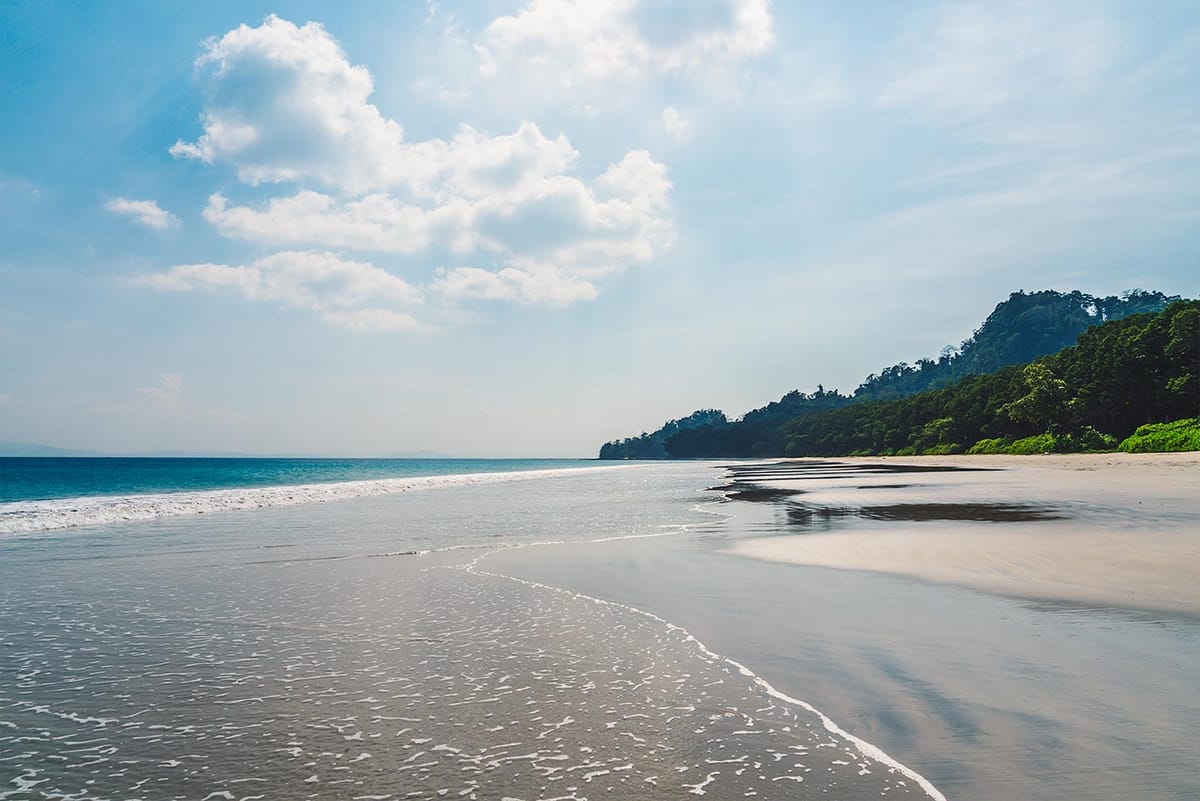Why Should I Travel?
There's a part of me asking, in defiance of Montaigne, "Should I travel at all? Should I leave my home, really?" I'm pitting the Maharshi against Michel de Montaigne.

By email the other day, writer-poet Abdul Rasheed invited me to visit him at Lakshadweep. He is working in that archipelago in the Arabian Sea as a broadcaster with All India Radio, our state-run radio service. I'd have been there and back, but I must wait for the still-uncertain normalisation, which I hope will happen by the end of these monsoons. Rasheed has a year's service left in Lakshadweep, and I must go when he is there. He is the best Kannada writer working today that I know, who goes anywhere with anybody and at any time, soon as he smells a story. With Rasheed, I'd have a richer experience of the islands.
Like everybody else, I love travel, but a lot less ever since tourism grew to this excess. Too many people travel these days, to every known and just-uncovered place in the world. I am wrong to resent the ever-swelling crowds of tourists, of course. Each of the eight-billion humans has a right to travel, which, it is argued, is good for the soul. Here's Michel de Montaigne extolling it:
Besides these reasons, travel is, in my opinion, a very profitable exercise; the soul is there continually employed in observing new and unknown things, and I do not know, as I have often said, a better school wherein to model life than by incessantly exposing to it the diversity of so many other lives, fancies, and usances, and by making it relish so perpetual a variety of forms of human nature.
But there's the virus now that has put paid to all plans. I had booked in late 2019 a spot for myself with [Valerie Jardin], for a weeklong street photography session right this month. The streets would be lovely in Paris in June now, with abundant white space thanks to the Covid outbreak, and moody, and more photogenic than ever. But Valerie has had to cancel that workshop, and there are no flights out anyway.
And so my soul and I are armchair bound, with a wrought-iron table by the side. I'm reading India in the Persianate Age, by Richard Eaton, trying my best to keep my wayward mind focused on names and dates that trip off the pages. Travel is denied the body, but the mind won't be held in check. Also, it is restless with fear that there might be no travel at all this year, perhaps beyond that even.
Pushed back thus, there's a part of me asking, in defiance of Montaigne, "Should I leave my home, really?" The truth is, the lockdown spoiled me, made me love the couch, the insides of my house, especially my study. And, even before the lockdown, I'd embraced the raging trend of having everything delivered: food, clothing, camera, lenses, shaver, soap, shampoo, books.


At times when I ponder this matter, the saint Ramana Maharshi comes to mind. I can't say I'm his disciple, I'm not quite there yet, but I have been several times to the meditation hall here that bears his name, a ten-minute drive from where I live. It's quiet enough inside it, to squat and close the eyes twenty minutes.
Born in Tiruchuli, a village in Tamil Nadu, Ramana Maharshi went to school at Madurai and Dindigul, both the towns in his home state. At age 16, he made his last journey, riding a train to Tiruvannamalai. At Tiruvannamalai, he lived until his death at 71, never travelling anywhere, while receiving visitors from everywhere. The journeys he undertook for his soul were his walks around the Arunachala hill in Tiruvannamalai.
For one who didn't travel at all, Ramana Maharshi apparently did a splendid job of finding himself and helping others in their quest.
Somerset Maugham travelled to see him and stayed at his ashram awhile. The result was an essay and the novel The Razor's Edge in which he featured a fictive saint inspired by Ramana. Henri Cartier-Bresson was a visitor during Ramana's last days, and he took pictures of the death rites. It is said the great photographer saw the comet in the sky that appeared in the moment of Raman's departure. I haven't seen a Cartier picture of that comet; I cannot imagine the sight overwhelmed him so much that he lost his professional instinct at that moment.
Anyway, my question to myself is, can I nurse my soul here in this enclave in Bangalore where I live? We don't have a hill like Arunachala in town, not even a small one, just houses and not-so-tall buildings with heaven-facing antennae on top. But that's all right, I suppose. The seeker should improvise. As did the Indian seers who went up the mountains, and the Judaean prophets who arrived at understanding in the desert. See how far Gautama Buddha has gone, just sitting under a tree.
Ah. If this virus hasn't my lung, something other has my brain.
Featured image: Radhanagar Beach, Havelock Island, Andaman & Nicobar, shot by me